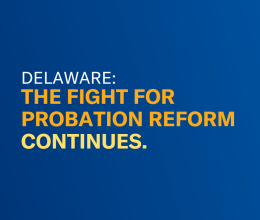On January 18, DSU students gathered with megaphones and posters to demand answers after receiving an email from the administration detailing yet another case of sexual assault on campus—the fifth since the school year began. Although the lack of response and mishandling of sexual assault cases spurred the protests, students expressed that this issue is a part of a much larger problem with campus police. A town hall was held the following day, and the student protestors aired their grievances in the nearly 9-hour-long meeting.
“Campus police use their power excessively with small things, like getting cars towed or giving parking tickets,” stated D’Aja Christopher, a senior studying mass communications. “During football season the university and the police department take precautionary measures and increase security. But when it comes to something as serious as the rise of sexual assault and rape cases, they move with a lack of urgency.”
Another student, who wished to remain anonymous, echoed the concerns raised at the student-led town hall regarding the lack of responsiveness from those in charge of student safety: “Campus police would arrive two or more hours after the incident happened. They would try and twist the situation by asking questions about whether those involved were under the influence of any substances or if the suspect was invited into the room.”
On January 20, the university announced next steps that included naming Deputy Chief Joi Simmons as the university's “Sexual Assault Awareness Officer.” There are also plans to upgrade campus security to include additional lighting throughout the main campus and enhanced camera use in the residence halls.
There was no mention of meaningful action to institute any reform in DSU’s police department, which is exactly what many of the student protestors demanded from administration. As stated by the anonymous student, “The university and campus law enforcement need to be able to admit failures.” Protestors have asked for faster responses to calls, better trained officers, and more transparency in sexual assault case handling. They are also requesting more counseling resources to address the current understaffing issues. There are only four counselors for over 6,000 students on and off-campus. Instead of these much needed changes, the student community is being offered surveillance features that will undoubtedly be used against them in the future.
Many of the comments during the town hall echoed conversations about the need for greater accountability and transparency in policing nationwide. As we have watched the country take to the streets in recent weeks in response to the unjust murder of Tyre Nichols, the student-led protests at DSU underscore the need for reform at all levels of policing in our society.
“The lack of action and accountability is not just relevant to survivors of sexual assault,” noted the anonymous student, “but also to many others who call on the police for assistance and are met with failure and inadequacy.”
The ACLU of Delaware stands in full support of the students demanding police accountability and transparency at their school. Students have a right to feel safe and well cared-for everywhere on campus. If the DSU police department claims it is committed to protecting and serving the community, it must answer to those community members who say: “This isn’t good enough. We want change now.”
Take Action
Sign the Petition: LEOBOR Reform NOW!
Under current laws in Delaware, the public is not guaranteed any transparency in a police-involved incident. In fact, Delaware’s Law Enforcement Officer’s Bill of Rights (LEOBOR) makes public access to police investigations nearly impossible. We can change this. Add your name to urge the Delaware legislature to support LEOBOR reform.









